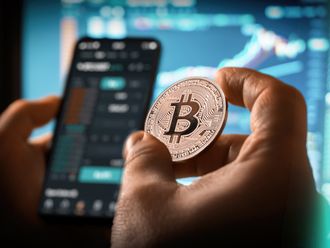Gold
Gold traded firm on Monday as economic uncertainty resurfaced, while demand from investors continued to ebb. Recent poor data from the United States pointed to a faltering economy, and some investors also ditched the euro on worries of more economic weakness ahead in the euro zone. On Friday, Indian jewellers shopped around before the start of Hindu festivals, while a strong baht helped Thai consumers defy a rise in bullion price to its highest in more than a month, keeping premiums for gold bars steady in Asia. Gold prices should “be well supported at the current level on account of the greater investor interest again,” Eugen Weinberg, Frankfurt-based head of commodity research with Commerzbank AG, wrote in a report. “In addition, the start of the festival season in India next week should also play a role as a lot of gold is traditionally given as gifts at this time.”
US Dollar
The US dollar held steady on Monday, retaining most of the gains it made late last week when growing worries about the global economy prompted investors to park funds in the world's most liquid currency, while the Australian dollar slid on political uncertainty. The dollar index, a gauge of the greenback's performance against six major currencies, climbed to a one-month high of 83.304 on Friday. The index is now quoting at 83.05. The Australian dollar dropped after neither of the major parties in Australia won an overall majority in Saturday's election to form a government, leaving the country facing its first hung parliament in 70 years.
Euro
The euro was on the defensive, hovering near a five-week low against the dollar and a seven-week trough against the yen, both hit on Friday when European Central Bank Governing council member Axel Weber said the ECB should extend its loose monetary stance, stoking worries about the euro zone economy. Data from the US Commodity Futures Trading Commission revealed that speculators trimmed bets against the dollar in the week ending August 17, with the value of the greenback's net short position shrinking to $14 billion from $17.82 billion the previous week.
Yen
The yen rose against the dollar in Asia Monday as Japan's prime minister and top central banker limited their dialogue on foreign-exchange matters to a telephone conversation. This lead investors to think that Tokyo may not take immediate action to tame the yen's recent strength. Bank of Japan Gov. Masaaki Shirakawa and Prime Minister Naoto Kan on Monday morning "discussed recent foreign exchange market movement as well as economic conditions at home and abroad," a BOJ spokesperson said. In a similar situation last December, the BOJ took new easing steps a day before an emergency meeting between its chief and the then-prime minister Yukio Hatoyama when a strengthening yen was threatening the country's economic recovery. But this time, with the two officials so far limiting their dialogue to a phone conversation, investors took it as a sign Japan's state of alarm over the strong yen isn't so great and the authorities will refrain from monetary easing or yen-selling intervention for the time being. A stronger yen is considered negative for the export-reliant economy because it deflates exporters' profits overseas when repatriated.
Oil
Crude oil futures for September opened on a slightly positive note as the prices rallied in the early Asian trades owing to bargain hunting and a pick up in the select Asian stocks. The US dollar is also trading slightly lower, easing off its six week lows of under 1.2700 against the Euro to quote at 1.2715 right now, pushing oil prices which are denominated in the US currency. The DOW closed in red on Friday, extending its recent slide but Asian markets hung in there, as expectations of decent performance from manufacturing firms in China pepped the sentiments up. Investors were also concerned if the massive slide in oil, which got crushed on rising US gasoline inventories and the strength in US dollar, was a little overdone. Stockpiles of the gasoline in the US have grown in seven out of the past eight weeks, rising 2.7 percent since the middle of June, according to Energy Department data. Motor fuel inventories usually hit a peak for the driving season in June or July. It was the first time since at least 1990 that they were at a seasonal high in August.
|
Price Update
|
|
|
GOLD
|
1229.4
|
|
SILVER
|
18.03
|
|
EURO
|
1.2706
|
|
GBP
|
1.559
|
|
YEN
|
85.35
|
|
RUPEE
|
46.625
|
|
AED / INR
|
12.692
|
|
AUD
|
0.8912
|
|
CHF
|
1.0333
|
|
CAD
|
1.047
|
|
OIL - WTI-Aug'10)
|
74.05
|
|
|
|
|
Date
|
August 23, 2010
|
|
Time
|
11:18:23 AM
|
Source: Richcomm Global, Dubai, www.richcommglobal.com












